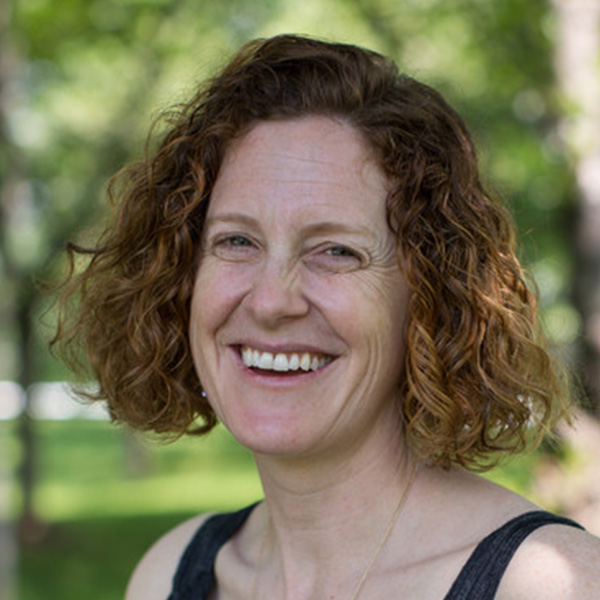
-
Areas of Expertise
- Jewish Holocaust survivors in occupied Europe
- Continued and increased antisemitism in post-Holocaust Germany
- Jewish emigration from Europe before, during, and after the Holocaust
-
Contact Information
- Email kcrago-schneider@ushmm.org
- Media contact Raymund Flandez, Senior Communications Officer, 202.314.1772, rflandez@ushmm.org
Dr. Crago-Schneider joined the Mandel Center in 2015 as a program officer working with students and faculty members throughout North America. She became the Campus Outreach program officer in 2019. Her current position cultivates interdisciplinary approaches to the Holocaust that are relevant to unique geographical regions in the United States and Canada. Active engagement and exploration, focusing on the range of racial persecution in North America and Europe during the 1920s, 1930s, and 1940s, enlivens Holocaust studies and other related fields. Dr. Crago-Schneider works with college and university communities to develop and facilitate rigorous, nuanced conversations around important historical questions, ensuring that Holocaust studies remains at the center of campus and curricular discussions.
Dr. Crago-Schneider’s research focuses on the relationships formed between Holocaust survivors living in Jewish-only displaced persons centers in Germany, American occupiers, international aid workers, and Germans from 1945–1957. Her research and writing examine the conditions, interactions, and continued antisemitism faced by Jewish survivors in the wake of their liberation.
Dr. Crago-Schneider initially came to the Museum as a graduate student when she participated in the 2012 workshop, “Exploring the Plight and Path of Jewish Refugees, Survivors, and Displaced Persons.” She returned in 2013 as a participant in another workshop, “Landscapes of the Uprooted: Refugees and Exiles in Postwar Europe.” She was the 2014–15 Life Reborn Fellow for Research on Displaced Persons working on her project, “Neighbors or Nemeses? A Study of Polish and Jewish Displaced Persons in the British Zone of Occupation in Post-Holocaust Germany.”
Dr. Crago-Schneider worked as a historian for the Conference on Jewish Material Claims Against Germany from 2013–15 and as a lecturer at UC Davis from 2012–13. Before this she was a Claims Conference Saul Kagan Fellow in Advanced Shoah Studies and a UCLA/Mellon Fellow on the Holocaust in American and World Culture.
Education
- Professional Certificate, event management, The George Washington University, Washington, DC, 2020
- PhD, Holocaust history, University of California, Los Angeles, 2013
- MA, modern Jewish history, University of California, Los Angeles, 2007
- MA, modern European history, University of California, Riverside, 2004
- BA, history and religious studies, University of California, Davis, 2002
Languages
- English
- Academically proficient in Yiddish, German, and Hebrew
Select Publications
- “Years of Survival: JDC in Post-War Germany, 1945–1957,” coauthored with Avinoam Patt in The JDC at 100: A Century of Humanitarianism, edited by Atina Grossmann, Linda Levi, Maud Mandel, and Avinoam Patt (2019)
- “A Community of Will: The Resettlement of Orthodox Jewish DPs from Föhrenwald,” Holocaust and Genocide Studies, vol. 32 (2018)
- “Jewish “Shtetls” in Postwar Germany: An Analysis of Interactions Among Jewish Displaced Persons, Germans, and Americans Between 1945 and 1957 in Bavaria” (2013)
- “Antisemitism or Competing Interests? An Examination of German and American Perceptions of Jewish Displaced Persons Active on the Black Market in Munich’s Möhlstraße,” Yad Vashem Studies, vol. 38 (2010)
Select Presentations and Interviews
- “Letters and Documents of Transit” and “Transit in Transit: Spaces, Places, Infrastructures,” Panelist at German Historical Institute’s October 2021 workshop, Archives of Global Transit: Reconsidering Jewish Refugees from Nazi Europe
- “Living among the ‘Enemy’: Jewish Displaced Persons in Postwar Germany,” presented at the German Studies Association’s October 2021 annual conference
- “The Aftermath of ‘Liberation’—Jewish Displaced Persons in the American Zone of Occupation, 1945–47,” May 2021 program with The National World War II Museum
